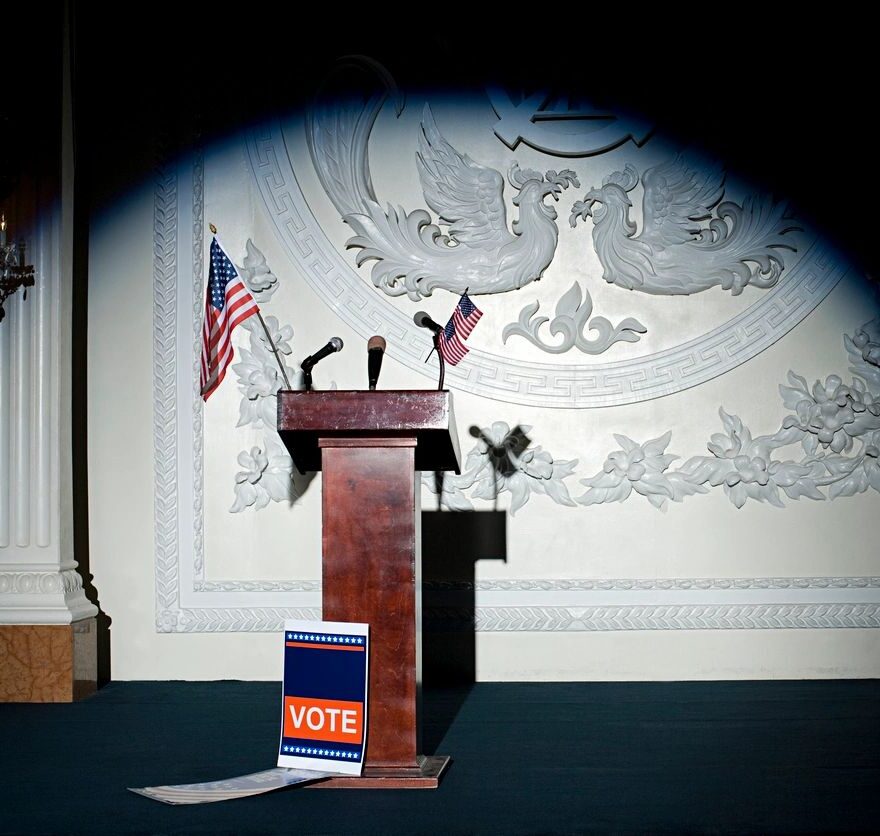 by Angelica Vega, Guest Blogger
by Angelica Vega, Guest Blogger
If there were one word to describe the First Presidential Debate between President Donald Trump and former Vice President Joe Biden, it would be “chaotic.” The millions of viewers who tuned in that night witnessed 90 minutes of interruptions and cringe-worthy responses. The distractions and personal attacks made it nearly impossible to focus on the candidates’ policies (or lack thereof), including their COVID-19 response plans. The event could only be called a “debate” by technicality.
Conversations about the performance of the two candidates in the first debate dominated social media channels from the moment it started. Amidst these discussions, some commented particularly on Biden’s performance, citing his change of phrase mid-sentence and his speech disfluency as reasons to discredit his performance and even his candidacy for office. Biden has a communication disability: stuttering, to be specific.
Throughout his political career, Biden has often and openly spoken about his history with stuttering. In a 2011 issue of People Magazine, he recollected his childhood experience: “I never had professional therapy, but a couple of nuns taught me to put a cadence to my speaking, and that’s why I spent so much time reading poetry – Emerson and Yeats.”
Now, Biden often mentors others and speaks openly about his experiences, including his “call list,” a list of people he has offered support to in the past and regularly keeps in contact with, including a child with a communication disability who he mentioned during the Winter Democratic Debate.
According to the National Institute on Deafness and Other Communication Disabilities, roughly 3 million Americans stutter. People with stuttering or similar communication disabilities often have trouble “producing a normal flow of speech” and often turn to speech therapy and electronic devices to better communicate their thoughts.
I have a speech disability myself, and I can recall the lessons I underwent to learn how to communicate effectively according to my own needs, such as slowly practicing pronunciation and finding alternative words or phrases to convey ideas without repeating myself.
Criticisms of Biden’s performance reflect widespread ableism in our society. If we are to understand and fight ableism, the social model of disability must frame our discussions. According to the Foundation for People with Learning Disabilities, the social model of disability “proposes that what makes someone disabled is not their medical condition, but the attitudes and structures of society.” We can identify several social barriers people with communication disabilities face in our society, including an inability to access necessary accommodations and services, severely limited support systems, and society’s generally ableist attitudes towards disabilities of this kind.
It is important to understand collective access, disability solidarity, and intersectionality, which all fall into the framework of Disability Justice, which is aimed at dismantling these harmful barriers and ableist mindsets held by society. One such ableist attitude that I am personally familiar with is the discouragement people with communication disabilities receive when trying to pursue certain fields or careers.
Those who know me know that I am determined to one day run for public office and win. Seeing someone in the political sphere like Joe Biden, who openly lives with a speech disability, gives me hope that I too can lead and inspire others with disabilities to run for office. This is why it hurts me so much when I hear comments from others mocking the way Joe Biden speaks.
So here’s the deal: don’t use ableist language to discredit someone’s performance. Critique politicians on their policies, not their disabilities.
It is time to dismantle ableism in our society and break down barriers, from changing the way we critique political leaders to demanding changes in various institutions.
We are the future, so let’s take the time to learn more about communication disabilities, and avoid ableist language when commenting on the final Presidential Debate.
Angelica Vega (she/her) is a CommunicationFIRST member and volunteer. In May 2020, she graduated from American University with a degree in philosophy, minoring in public health. Her long-term goal is to advocate for people with communication disabilities to be included in all aspects of society.
Note: As a 501(c)(3) nonprofit organization, CommunicationFIRST does not support or endorse candidates for office, including the office of the US President. Nothing in this blog post should be construed to be a political endorsement.

